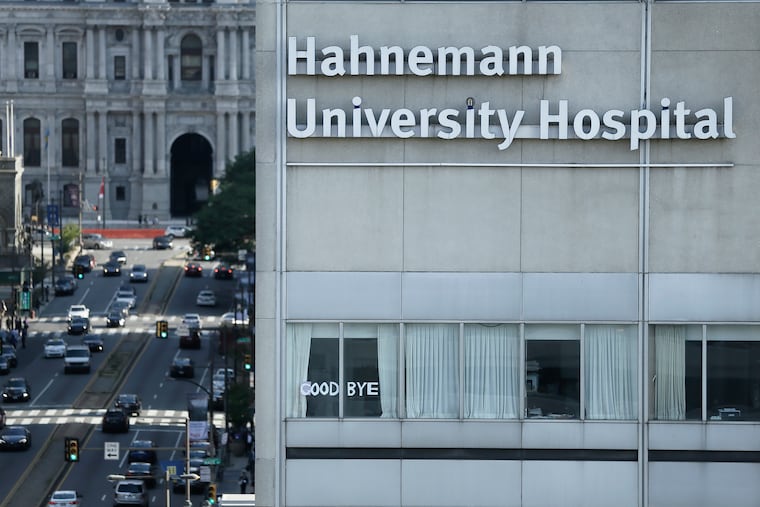If coronavirus cases surge in Philadelphia, city wants to use shuttered Hahnemann property
The facility could be used for a variety of services to relieve strain on the health care system, not necessarily for the treatment of patients infected with the coronavirus, officials said.

Philadelphia officials are exploring ways to use the former Hahnemann University Hospital property should the city see a surge of coronavirus cases, Health Commissioner Thomas Farley said Wednesday.
The debt-ridden safety-net hospital was shut down last year after its owner, American Academic Health System, filed for bankruptcy.
The facility could be used for a variety of services to relieve strain on the health-care system, not necessarily for the treatment of patients infected with the coronavirus, officials said.
But the move would come only as a last resort.
“It would not be a simple task, by any means," Farley said during a meeting about the virus with leaders of major health systems and Independence Blue Cross, the region’s largest health insurer. “Our hope is that we never get to that point.”
The Pennsylvania Department of Health revoked Hahnemann’s hospital license in November, and its beds and other equipment were auctioned in January. All that’s left are some old desks. Even so, the city already has been in touch with the facility’s owners to discuss the possibility of using it, Farley said.
The Hahnemann real estate was not part of last summer’s bankruptcy and it remains under the control of Joel Freedman, the California businessman who in early 2018 bought Hahnemann and St. Christopher’s Hospital for Children for $170 million.
A spokesperson said Freedman offered the property to assist the city and Public Health Department in the handling of COVID-19 pandemic patients, but the spokesperson cautioned that there are many complications, such as the absence of beds and other equipment and utilities that serve buildings not controlled by Freedman.
Before closing, the 496-bed hospital saw about 150 emergency department patients daily.
All hospitals in the city would share the facility in the event of a coronavirus surge, under the scenario Farley envisions. But it was not immediately clear how the licensing issue would work out or if insurers would pay for care provided in an unlicensed facility. The state Department of Health considers the facility out of its purview because it is not licensed.
“The city is still only at the point of talking to facilities, including the owners of the building that used to house Hahnemann, about the possibility of using one or more of these sites as a healthcare setting or a quarantine setting,” James Garrow, spokesperson for the city Department of Public Health, said in an email. “There are obviously many, many details to be worked out, but the first step is to figure out if this is even possible.”
As a quarantine site for people who have no other place to go, the former Hahnemann facility would not have to be licensed. “You just need a place where someone can be away from others; it can be staffed by almost anyone,” Garrow said. A health-care setting, including an inpatient facility, would require state approval, he said.
The idea of tapping into space at the Hahnemann property came as a result of conversations with Patrick J. Brennan, Penn Medicine’s chief medical officer, Farley said.
Farley said there was no evidence yet that the virus was spreading within Philadelphia, but if the experience of other regions and countries is any guide, the situation could change in a hurry.
“If we have a big surge, it would be difficult,” the commissioner said.
Brennan, who was among those at the meeting Wednesday, said Penn also had explored possible ways to expand its own capacity in a worst-case scenario.
One would be to use “non-clinical” spaces such as lobbies, which could accommodate patients with other conditions, thereby freeing up private rooms for the small percentage of coronavirus patients with serious illness, he said.
The other would be to reopen a small number of clinical rooms that are currently not in use. He declined to be specific, but said the spaces were being converted for use by medical specialties.